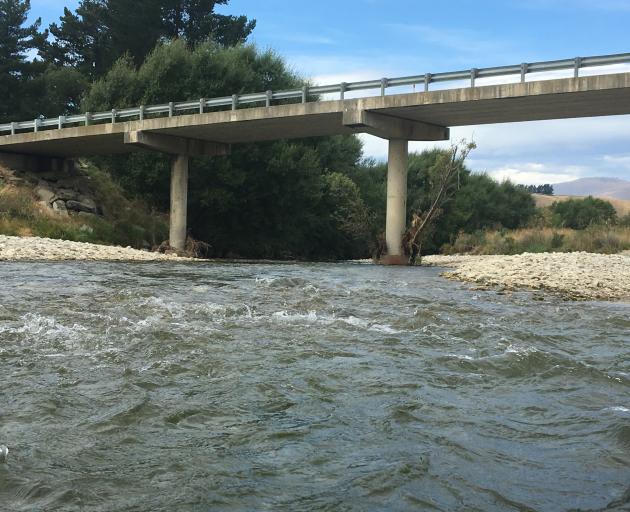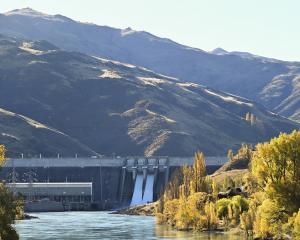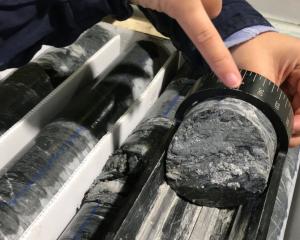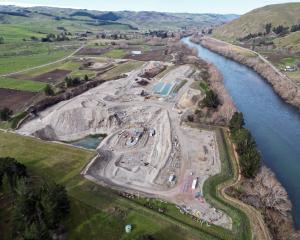
But at least one group involved has serious issues with the judgement.
Justice Rob Osborne this week released his High Court decision to dismiss Otago Fish and Game’s appeal against a 2019 Environment Court decision to set the minimum flow for the Lindis River at 550 litres per second and a primary allocation of 1640 litres per second.
Otago Fish and Game said there were errors of law in the decision, and wanted the minimum flow left at the higher level of 900 litres per second and a primary allocation of 1200 litres per second.
Water from the river is used by more than 50 Lindis and Ardgour Valley water users for irrigation.
Otago regional councillor Michael Laws said the judgement was "a victory for both local irrigators and the Otago environment".
The appeal had been "spectacularly ill-considered", as science had been the centrepiece for the Environment Court’s earlier decision, he said.
He believed both the council and Lindis area irrigators must reclaim legal costs from Otago Fish and Game.
Otago Fish and Game chief executive Ian Hadland said its council was considering the implications of the judgement.
The core of its appeal centred on the way trout were treated in the judgement and concerns the Environment Court had not applied the law correctly, he said.
This had implications both for the final decision in respect of the Lindis River, and also other decisions affecting rivers and freshwater habitats.
However, while the judgement might initially seem negative, there were several positives to be taken from it, Mr Hadland said.
"A good outcome of our High Court appeal is that the place of trout and salmon habitat in the Resource Management Act, and as part of the existing environment and ecosystem, was confirmed.
"That’s extremely helpful as we enter the next phase of water planning in Otago."
The Lindis was "a seriously depleted river" and important trout nursery stream for Lake Dunstan and the upper Clutha River.
"We’re not comfortable with the idea that a river is sustainably managed when 70% of its low flow is removed for irrigation but that’s the decision that has been made. Nonetheless, we will continue to stand up for the restoration of depleted rivers."
Mr Hadland said the decision was in part a reflection of the poor state of Otago’s water planning framework which an independent review by former environment court judge Prof Peter Skelton described as not fit for purpose.
He believed that was largely to blame for the ongoing conflict and delays around water allocation and large legal bills for all parties.
"If you ran this whole case again tomorrow from the start, I’d suggest the outcome would be more positive for the river, not because of the local planning framework, but because of the Government’s updated national policy statement on freshwater which clearly prioritises the river’s needs first and recognises sports fish habitat as a value to be protected. That’s exactly what we argued in the first place."
The judgement requires parties, if unable to reach agreement themselves on costs, to file submissions on costs to the court within 10 working days.
An Otago Regional Council spokeswoman said it would respond on Monday.
Comments
Fish and Game had better brace themselves for a shock. After years of kicking farmers at every possible opportunity, the Dept of Conversation and iwi are now turning their sights on trout. The ORC's most recent regional policy statement (which is a policy drafting debacle itself) has submissions calling for the removal of trout - the stoats of our rivers. Thanks Fish and Game for giving us rabbits and ferrets and trout to destroy our environment. It's time for trout and Fish and Game to go.
Clearly written by someone who would prefer to continue to farm intensively without any environmental constraints, and sees nothing wrong with extracting three quarters of a river's flow, to support unsustainable farming practices in what would otherwise be a virtual desert.
New Zealand's native fish evolved with predation, from species such as eels and kokopu. Why else would they be so cryptic? We have always had isolated populations confined to headwaters, otherwise they wouldn't have evolved into different species. To try and blame trout for restricted distribution is nonsense.
Self-proclaimed 'çonservationists' need to be careful arguing trout are pests. Pre-covid they brought in tens of millions of tourist dollars, and are valued by tens of thousands of kiwis. However, the fact that they support the most effective lobby for our freshwater ecosystems seems to be overlooked by some, but not by intensive agricultural interests. DOC will likely continue to fail our freshwaters, so let's be careful what we wish for!












